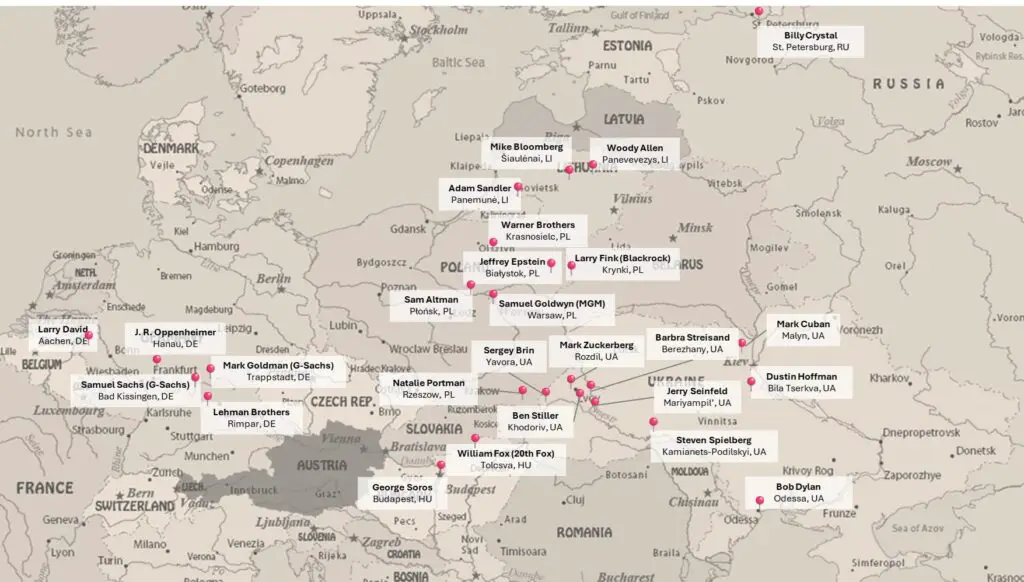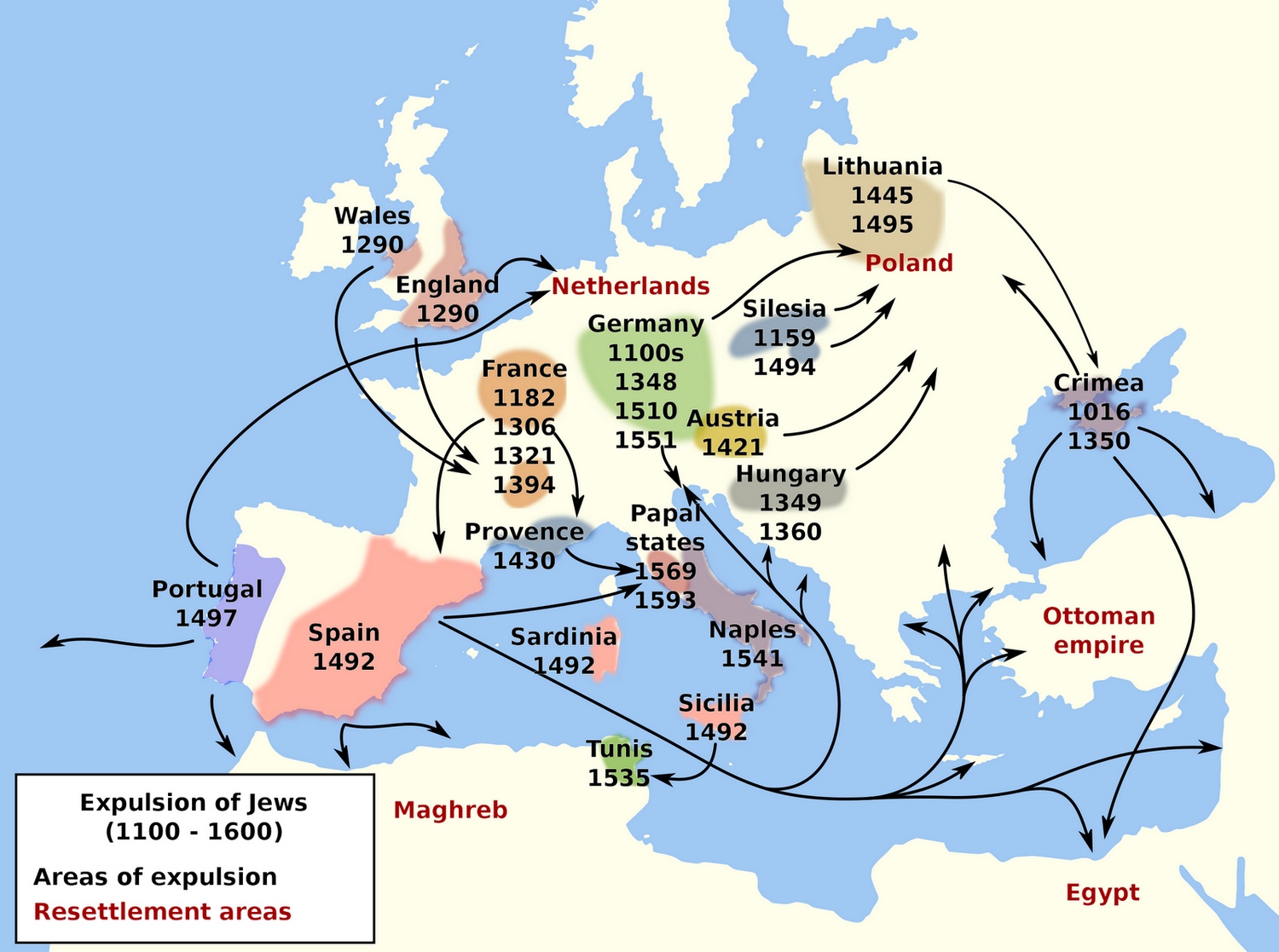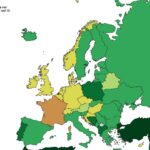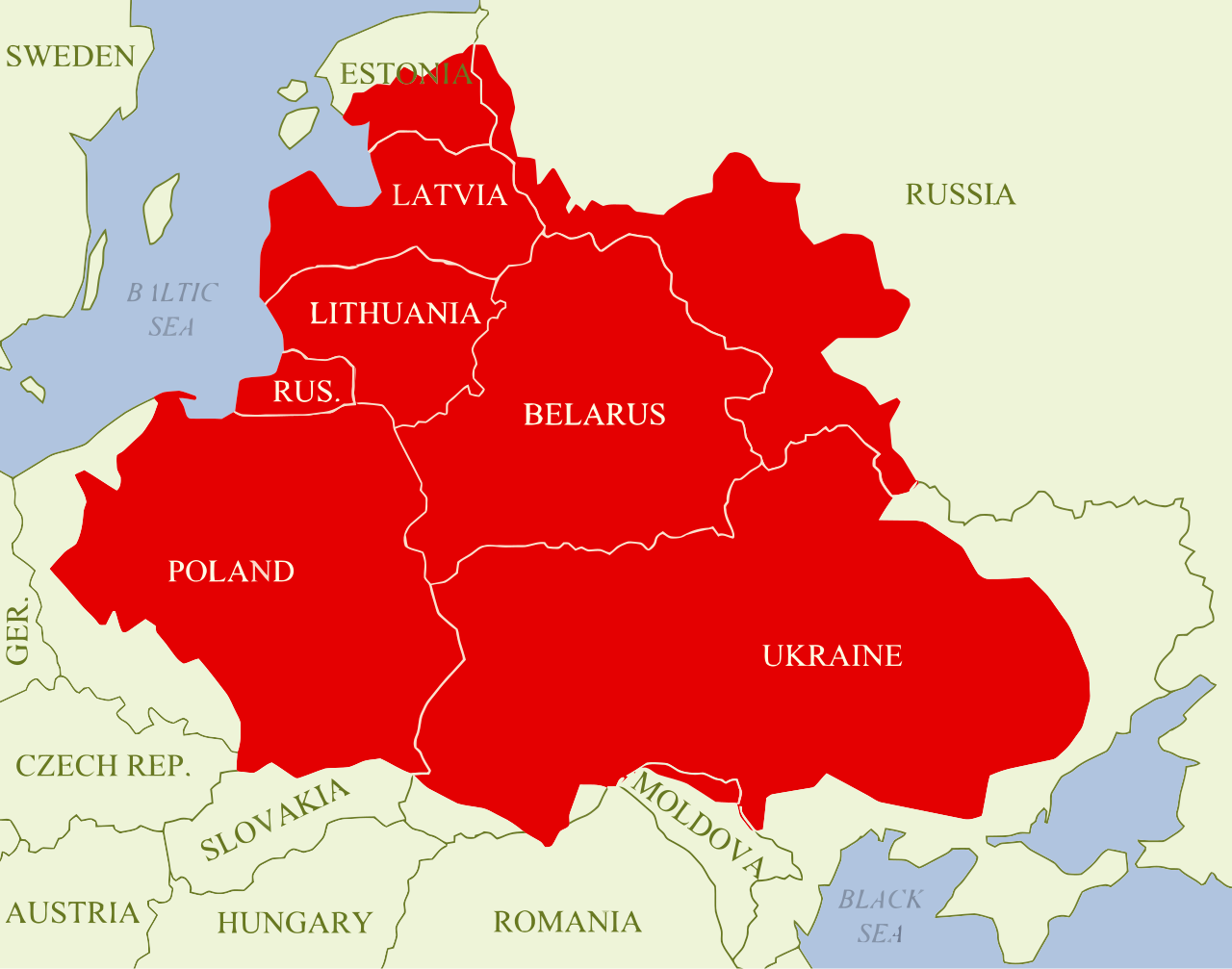From Shtetl to Silicon Valley: Mapping Jewish American Success Stories

When you look at the remarkable success of Jewish Americans in entertainment, technology, and finance, there’s a fascinating pattern in where their families came from. The dots on this map above created by Reddit user: VonUndZuDerTann tell a story that goes far beyond individual family histories – it reveals why so many successful Jewish Americans trace their roots to this specific region of Eastern Europe.
The answer lies in the Pale of Settlement, a western region of Imperial Russia where Jews were legally permitted to live from 1791 to 1917. This vast territory encompassed much of present-day Lithuania, Belarus, Poland, Moldova, Ukraine, and parts of western Russia. By the late 19th century, nearly five million Jews lived in the Pale – the largest Jewish population in the world at that time.
Life in the Pale fostered several key characteristics that would later fuel success in America. Jewish communities placed enormous emphasis on education, particularly on literacy and critical thinking through Torah study. Even poor families would scrape together money for their children’s education. This cultural focus on learning and intellectual achievement would prove invaluable in America.
The restrictions on land ownership and many professions meant that Jews in the Pale became particularly adept at commerce, trading, and various forms of entrepreneurship. Many worked as merchants, craftsmen, or middlemen between rural and urban areas. These business skills and entrepreneurial mindset would serve their descendants well in America.
Look at the Warner brothers, who came from Krasnosielc in Poland. Their family’s experience as traveling merchants selling goods between villages likely contributed to their later success in film distribution and eventually production. Or consider the Goldman and Sachs families from Bad Kissingen and Trappstadt in Germany – regions where Jews had developed sophisticated financial and trading networks.
The waves of immigration from these regions to America weren’t random. Between 1881 and 1924, over two million Jews left Eastern Europe, driven by pogroms, discrimination, and poverty. The majority came to America, bringing with them not just dreams but generations of accumulated knowledge in business, trade, and education.
This explains why we see such a concentration of successful Jewish Americans with roots in Ukraine. From Steven Spielberg’s family in Kamianets-Podilskyi to Mark Zuckerberg’s in Rozdil, these families came from communities that had developed remarkable resilience and adaptability. The same is true for Jerry Seinfeld’s ancestors from Mariyampil’ and Bob Dylan’s from Odessa.
The tech pioneers on our map – Sergey Brin from Yavora, Sam Altman from Ptohsk, Mark Cuban from Malyn – are continuing a long tradition of innovation and adaptation that their ancestors developed in the Pale. Their families’ experiences navigating restrictions and finding creative solutions to problems became valuable assets in America’s dynamic economy.
Today’s success stories – whether in Silicon Valley, Hollywood, or Wall Street – aren’t just about individual talent. They’re the result of cultural values and skills developed over generations: emphasis on education, adaptability, entrepreneurial thinking, and resilience in the face of adversity. These qualities, honed in the cities and shtetls of Eastern Europe, found fertile ground in America’s meritocratic society.
What family stories do you know about? Whether your ancestors came from the Pale of Settlement or elsewhere, share your immigration story in the comments below. These personal histories help us understand how cultural heritage shapes success across generations.








